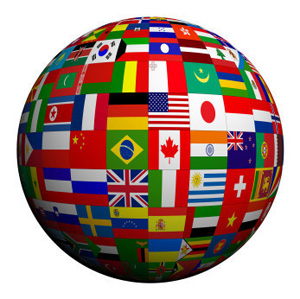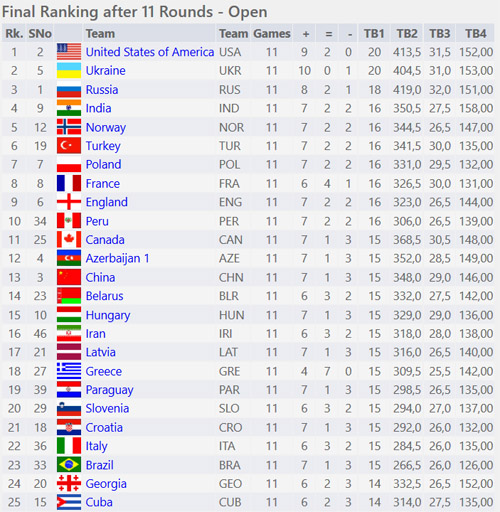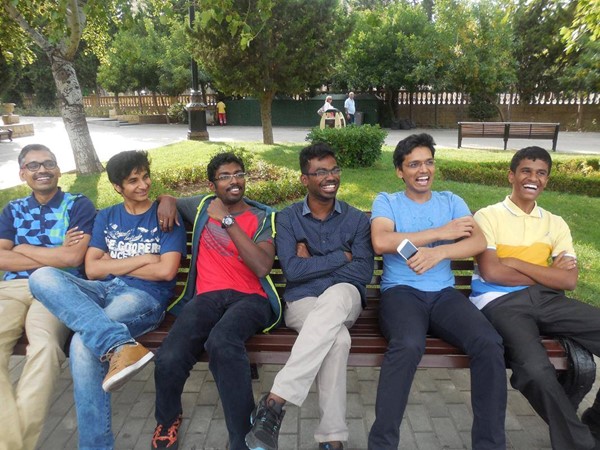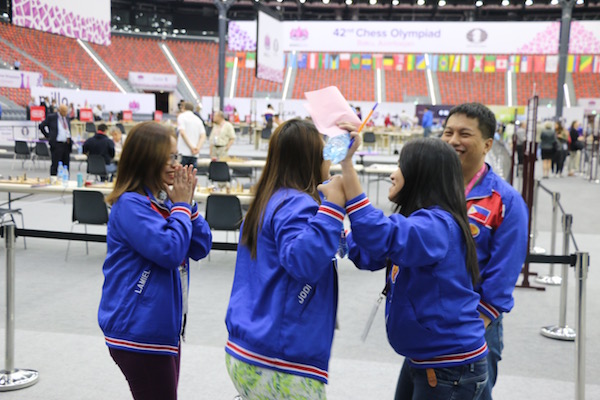Post-Olympiad: Balance of Power shifts


The Olympiad ended less two weeks ago with the USA being crowned the champions for the next two years. The teams was among the favorites which included top seeded Russia, host Azerbaijan, Ukraine, Georgia, Netherlands and defending champion, China. With Armenia absent, this site predicted USA, China and Azerbaijan. However, if one looks at the final standings there are some very surprising countries to note. Below is a list of the top 25.

If we look at the chart, we will see some unlikely names gracing the top 25. The top three are would be expected in any of the past 10 Olympiad tournaments. India at #4 made a break through in 2014 with a bronze medal despite not having Viswanathan Anand or Pentala Harikrishna. This year came Harikrishna with the emergence of young stars, relatively unknown GMs.

Coach R.B. Ramesh, Vidit Gujrathi, B. Adhiban, S.P. Sethuraman,
Pentala Harikrishna, Murali Karthikeyan
At #5 you have Norway who only finished in top 20 on one other occasion. They achieved their best showing at an Olympiad with World Champion on top board. Magnus Carlsen congratulated his team for the fifth place finish before making a regrettable comment about the U.S. team importing American-born Fabiano Caruana and Filipino Wesley So. Nevertheless, the Norwegian team performed surprisingly well as did Carlsen.
Well, he is the World Champion. I guess he can wear what he wants. Imagine Karpov in that 🙂 pic.twitter.com/fagQPtRMqv
— Carl Portman (@Carl_Portman) September 9, 2016
In sixth place was Turkey, not a biennial favorite for the top ten finishers. With Alexander Ipatov and Dragan Solak leading the pack, they got their best showing with the previous high being 21st in the previous Olympiad in Norway. Poland, England and France on were 16 points, but so was Peru! Without Julio Granda-Zuniga they tallied an impressive score with former prodigy Jorge Cori getting 8/10 and a bronze medal.
Jorge and Deysi Cori (Peru)
photo: @davidllada #bakuchess pic.twitter.com/VFsGbB7oCg
— Baku Chess Olympiad (@bakuchessol2016) September 10, 2016
Canada also beat all expectations with their 11th place finish. With Evgeny Bareev and Anton Kovalyov now playing for Canada and Alexadre Lesiege coming out of retirement, it allowed Eric Hansen to mop up on board four with 9/11. Canada had placed 7th in Buenos Aires in 1978 with Abe Yanofsky on board one. China was surprising as defending champions finishing 13th. The normally unbeatable Wang Yue underwhelmed on top board losing three games.
Belarus, native country of Boris Gelfand, came in 14th, silver medalist from 2014 Hungary came in 15th, followed by surprising Iran who was buoyed by young talent. Sixteen-year old Parham Maghsoodloo was an untitled player, but after 8/11, he earned the GM title without having previously earned a FIDE title. His 2566 Elo rating was more telling than his lack of a title. In addition, 17-year old IM Shahin Lorparizangeneh got 7/11 scoring +2 against seven GMs. He also earned the GM title. On fourth board was the national champion, 13-year old Alireza Firouzja!
Alireza Firouzja (Iran)
Photo: @davidllada pic.twitter.com/vohM6Bnyde
— Baku Chess Olympiad (@bakuchessol2016) September 9, 2016
Latvia with Alexei Shirov played well for 17th place while Greece at 18th went undefeated. They were the only team to do so besides the USA. It was clearly a historic result with reserve Stelios Halkias scoring +5. Paraguay was also totally unexpected with their Cuban emigre Neuris Delgado on top board. Slovenia excelled with Alexander Beliavsky still going strong and Croatia at 21. Italy finished at 22 and actually performed better than previous Olympiad when they had Caruana on top board. Brazil, Georgia played around their level, while Cuba disappointed at 25th.
So there you have it. The 2016 represents a watershed moment for many federations who will see this tournament as a key point in the development of their chess teams. On the other hand some federations will soon be in the rebuilding mode as some of the top players will soon retire. Fortunately for teams like China and India, they do not have to rely on a rigid lineup as they have deep pools of talent.
We failed to mention here all of the board upsets by less-fancied nations. The first round is a snake pit for higher-rated teams as they are facing federations whose real strength is hard to gauge. Thus we will get a handful of upsets such as Sudan’s 2-2 draw with Bulgaria! During that match these two upsets occurred…
         |
|---|
We even see a sitting Finance Minister of Latvia beat a sitting World Champion! We saw the Filipino women beat perennial powerhouse Georgia. Speaking of Filipinos, Eugenio Torre’s 10/11 in his 23rd Olympiad is worthy of note! So many examples about the changing balance of power.


Filipinos celebrate victory over Georgia!
Photo by chess.com (Mike Klein)
In the magazine New in Chess, there is always the question in Just Checking segment, “What will be the nationality of the 2050 world chess champion?” Increasingly, the answer will be from any number of nations. If you look at the individual Elo rating list, the top 25 is more diverse than it has ever been. Who would have thought that Norway would produce a World Champion? In the above question lies a truism… change is constant and thus the balance of power has changed for the better. GENS UNA SUMUS.

im most impressed with Norway getting 5th with Magnus pretty much carrying the whole team
Whats so impressive about Norway they got Carlson and Hammer , look at Peru they came in at a perfect 10 and i dont even know their players! lol ULTRAMODERNIST.